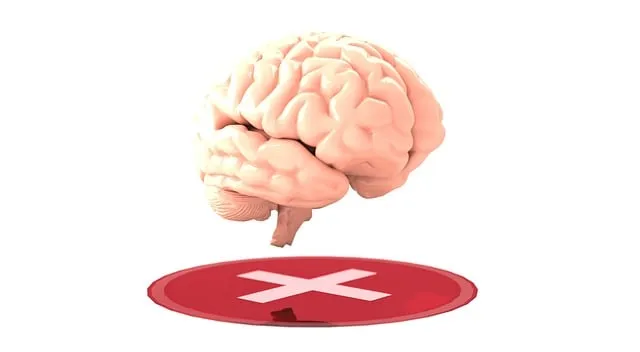Crisis Intervention Teams (CITs) are vital resources in Arvada, Colorado, offering swift and specialized mental health crisis support. Integrated with organizations like Kaiser Permanente, these teams de-escalate situations, provide counseling, and connect individuals with long-term care, reducing pressure on emergency services. Training programs for behavioral health teams at Arvada Kaiser Permanente equip professionals with conflict resolution, active listening, de-escalation, and mindfulness meditation skills. These programs enhance mental health policy analysis and foster an empathetic response to crises, positioning the healthcare provider as a vital community resource. Effective CIT training prioritizes resilience building, cultural sensitivity through role-playing scenarios, and conflict resolution techniques, contributing to improved short-term outcomes and long-term mental wellness.
In today’s complex social landscape, effective crisis intervention is more crucial than ever. This article explores the vital role of Crisis Intervention Teams (CITs) in mitigating mental health crises and their profound impact on community well-being. We delve into the significance of comprehensive training programs, highlighting successful initiatives like Arvada Kaiser Permanente Behavioral Health’s support system. By examining key training components, we uncover how these programs foster effective CIT responses, ultimately enhancing long-term community resilience. Remember that access to resources like Arvada Kaiser Permanente behavioral health number is crucial for timely intervention.
- Understanding Crisis Intervention Teams: Their Role and Impact
- The Importance of Training for Effective Response
- Arvada Kaiser Permanente Behavioral Health: A Resource for Support
- Key Components of a Comprehensive Crisis Team Training Program
- Benefits and Long-term Effects on Community Well-being
Understanding Crisis Intervention Teams: Their Role and Impact

Crisis Intervention Teams (CITs) are specialized groups designed to respond swiftly and effectively during mental health crises. These teams typically include trained professionals from various disciplines, such as psychiatric nurses, social workers, and psychologists, who collaborate to provide immediate support to individuals experiencing severe emotional distress or suicidal ideation. The role of CITs is multifaceted; they aim to de-escalate situations, offer crisis counseling, and connect individuals with long-term care options, thereby reducing the strain on emergency services.
The impact of well-structured CIT programs is profound. By integrating these teams into communities, especially in places like Arvada where Kaiser Permanente behavioral health services are accessible, individuals facing mental health challenges receive timely intervention. This proactive approach not only improves short-term outcomes but also fosters long-lasting mental wellness. The Mental Wellness Podcast Series Production can highlight real-life stories of CIT interventions, while Mindfulness Meditation and Resilience Building techniques could be integrated into training to empower team members and the community at large.
The Importance of Training for Effective Response

Effective crisis intervention requires well-trained professionals who can respond swiftly and skillfully. Training programs for crisis intervention teams play a pivotal role in equipping individuals with the knowledge, tools, and confidence needed to handle critical situations. These programs are designed to enhance mental health policy analysis and advocacy, ensuring that team members understand the broader context of behavioral health services within Arvada Kaiser Permanente or any other healthcare setting.
Through comprehensive training, participants acquire valuable skills such as conflict resolution techniques, active listening, and de-escalation strategies. Mental wellness coaching programs development is a key component, enabling team members to provide compassionate support while maintaining professional boundaries. Such training not only improves individual performance but also contributes to the overall quality of care, fostering an environment where mental health issues are addressed effectively and with empathy.
Arvada Kaiser Permanente Behavioral Health: A Resource for Support

Arvada Kaiser Permanente Behavioral Health stands as a beacon of support for individuals in crisis, offering specialized services that cater to mental health awareness and trauma support. This healthcare provider’s commitment to community well-being is evident through its comprehensive crisis intervention team training programs. Their expertise lies in equipping professionals with the tools necessary to navigate complex situations, ensuring prompt and effective assistance.
By providing resources for both staff and the public, Arvada Kaiser Permanente behavioral health plays a pivotal role in promoting mental health policy analysis and advocacy. These programs are designed to foster an environment where everyone involved understands the nuances of trauma support services, ultimately leading to better-equipped communities capable of responding to crises with empathy and efficiency.
Key Components of a Comprehensive Crisis Team Training Program

A comprehensive crisis intervention team training program should incorporate several key components to ensure effectiveness. Firstly, it must focus on Resilience Building, equipping team members with tools to manage their own stress and maintain composure during high-pressure situations. This includes teaching coping mechanisms, emotional regulation techniques, and fostering a culture of mental well-being within the team.
Additionally, the program should emphasize Community Outreach Program Implementation. Training should involve role-playing scenarios that reflect real-life crisis situations, allowing participants to practice effective communication and de-escalation strategies. This practical approach ensures team members are prepared to handle diverse community needs, including those from diverse cultural backgrounds. Incorporating Conflict Resolution Techniques is also vital, as it equips the team with skills to navigate challenging interactions, promoting peaceful outcomes and fostering positive relationships within the community and among team members.
Benefits and Long-term Effects on Community Well-being

Crisis intervention team (CIT) training programs play a pivotal role in enhancing community well-being by equipping individuals with essential skills to manage and resolve critical situations. These programs, such as those offered by Arvada Kaiser Permanente behavioral health services, go beyond immediate crisis resolution. They empower participants with knowledge and confidence to prevent burnout among healthcare providers, fostering sustainable mental health practices. By integrating cultural sensitivity in mental healthcare, CIT training ensures diverse communities receive tailored support, addressing unique challenges and promoting inclusive healing.
On a broader scale, the long-term effects of these initiatives reverberate through society. Improved conflict resolution techniques within healthcare settings can reduce tensions and improve patient satisfaction. This, in turn, can lower healthcare costs and enhance overall community resilience. The ripple effect extends to reduced crime rates, improved public safety, and stronger social connections, ultimately contributing to a more harmonious and thriving community environment.
Crisis intervention team training is a vital asset for any community, as it equips professionals with the skills to handle crises effectively. Programs like Arvada Kaiser Permanente Behavioral Health offer comprehensive resources and support, ensuring that teams are well-prepared to make a positive impact. By investing in these training initiatives, communities can foster improved mental health outcomes and overall well-being, demonstrating the long-term benefits of proactive crisis response strategies. Contacting Arvada Kaiser Permanente behavioral health services (a dedicated phone number, e.g., 1-800-XXX-XXXX) is a significant step towards building resilient and supportive communities.






